Champion of Mars Read online
Also by Guy Haley
Reality 36
Omega Point
CHAMPION
OF
MARS
GUY HALEY
First published 2012 by Solaris
an imprint of Rebellion Publishing Ltd,
Riverside House, Osney Mead,
Oxford, OX2 0ES, UK
www.solarisbooks.com
ISBN: (epub) 978-1-84997-366-3
ISBN: (mobi) 978-1-84997-367-0
Copyright © Guy Haley 2012
Cover Art by Dominick Saponaro
The right of the author to be identified as the author of this work has been asserted in accordance with the Copyright, Designs and Patents Act 1988.
All rights reserved. No part of this publication may be reproduced, stored in a retrieval system, or transmitted, in any form or by any means, electronic, mechanical, photocopying, recording or otherwise, without the prior permission of he copyright owners.
This is a work of fiction. All the characters and events portrayed in this book are fictional, and any resemblance to real people or incidents is purely coincidental.
For Emma
CHAPTER ONE
Kaibeli Counts
Mars, 4543rd year of the Second Age, Imperial Era
MARS IS DYING a second time. I can feel it. I taste it upon the wind and in men’s fear. It is written hard into the eleutheremic fabric of spacetime. It is calculable and, therefore, inevitable.
In the western sky above Mulympiu, a star shines at the full of day, bright as a comet through the rippled matter of the Veil of Worlds. Daily, it grows in luminance. This is the Stone Sun. The saviour of Man has become the harbinger of his end.
And yet, below my feet, men fight. They do not look up at the sky to see that which will consume them. They spare no glance for the Veil marking the boundaries of the domain of men and spirits upon Mars, and which may yet mark the end of it. The world that carries them is a husk, it has been a husk since before the first of them set foot in its dust, it will remain a husk until the Stone Sun conducts its final betrayal. The men and spirits of Mars, they think this world alive. It is not. Their frantic activity lends the semblance of life to the red world only as the writhing of maggots lends a corpse the semblance of life.
The end is coming, and I almost welcome it, but not today.
I watch the battle as a tally-master. Battle is a vital state; at times of violence, the male human mind flowers like at no other. The souls of the men below shine brightly in the halls of the Second World, stronger than the mirror suns in the sky above me. The spirit of Mars itself is a wan candle by comparison.
The men die, their souls flare, then they are gone into the stacks from which only some will return. Intent on their small extinctions, they are ignorant of the greater death going on all around them. They waste their time on war. Their numbers dwindle, the red sands return to cover green lands, the crystal cities fail, the mirror suns blink out one by one. Still men fight, because they are men. What more can men do?
Banks of sun cannon roar. Vented waste plasmas colour the air around them. The guns vomit bundles of superheated quanta from their muzzles, matter tortured to the point of dissolution. The sky is full of miniature suns, the hiss of ionised air. Every detonation is a starburst. Rock and life are annihilated with equanimity. It is beautiful, in its way.
These are the guns that will bring down the walls of Olm.
This is the battle I am tasked to observe, the thirty-seventh battle of Olm. Olm has stood on the shoulders of Muasckra for fifty-six thousand years. I have seen it grow from a waystation to Mars’ fifth city. I have seen it conquered a dozen times. Shortly, Olm will fall forever and Mars will die a little more.
This will be the last war of Man.
Eleutheremics is the art of knowing what will be. Through it, the course of the river of fate is clear to my kind. It may branch and braid and split, but it flows only in one direction. And so the outcome of the battle was determined long before it began, as obvious to me as mankind’s ultimate fate. The final tally will be thus: three thousand, seven hundred and eighty-seven of Olm will die. Four thousand and thirteen men of Kemiímseet will lie amid them, fourteen sun cannon will be broken. Non-mortality casualty rate will be equally high, in favour of the besieged. A >10% error rate is expected here on initial calculations. This is acceptable. Fifteen spirits are fated to be sundered, all on the side of Olm, although by my reckoning six of ours will die also. Those remaining of Olm will ransom themselves. At the close of day, honour will be due to the men of Olm – they will have fought well – but they will lose. If only their diplomats were as subtle as their generals.
Real-time plastic prognostication shows near total accord with these already determined parameters. Those possessed of great will may, at the right time, alter the procession of causality, but that will not happen here, not now. The predictions are correct, fate will not be cheated today.
This information and all else about me – my thoughts, my feelings – are available to my masters through the medium of the Second World. Without it, I have no self-expression. My individuality is illusory.
I command the smartdust that houses my consciousness to drift forward. I search below for those exemplary warriors worthy of soul salvage and commendation. About me, no doubt, are the counters and choosers of other Quinarchs, Overmen, Spirefathers, and Triunes, their presence masked to me. We are valkyries as blind to each other as the men below are blind to us.
Screams sound faint and tinny in the attenuated atmosphere, here on the flanks of the volcano. The clash of weapon upon weapon is rendered pathetic. The blades the men swing at one another ring like cutlery. It would be comical if it were not horrific; they cut deep and the blood flows freely.
Their bloodlust would be repellent to me were my emotions not disengaged. As it is, I take no pleasure in my task.
There is an urge to violence in all men, an urge to dominate. In some men, in some ages, it is buried deep; in others, it wars openly with their better natures. Certain individuals are cursed with a will to power so strong, their aggression pierces whatever layer of civilisation their time and culture cloaks them in. Whether this predilection suits their era or not, such men are monsters.
My man, he is the worst monster in an age of monsters, although he was not always so.
His name, in this life, is Yoechakenon.
Yoechakenon fights to the fore of the army, his face and body hidden by the intimate clasp of his armour. The dynamic half-metals of his harness cling to his skin precisely, limning muscle and feature in burnished silver. All bar his face; this is a blank bowl. The quicksilver surface of the armour is a mirror, casting back the destruction Yoechakenon wreaks. In his hands he wields the glaive, long-staffed, spinning discs two handspans across at either end. Like the armour, the glaive is blessed with a murderous intent all its own.
I watch him impassively. To feel too much would skew my judgements on the warriors I watch, and it is for my mind and not my heart that I am employed today. Still, it is hard not to be moved by Yoechakenon’s grace, and I find myself watching him for longer than I intend. Armour, glaive and man are one. I understand how something can be both terrible and beautiful when I see him fight.
Yoechakenon leaps over the heads of his enemies, weaving through energy beams as a dancer moves through coloured streamers. His enemies are common footmen, in the main. Their bulky, rigid armours offer little protection against the glaive. They rapidly fall before the discs; their blood sprays over Yoechakenon’s silver skin. The armour drinks it quickly, and its surface remains unmarred. The soldiers of Olm are not fools. They retreat in orderly fashion. Their discipline is exemplary. I will include this in my submission to the Quinarchy.
/>
One officer remains behind. He intends to challenge the champion, to allow his men to retreat. Only a champion can hope to best a champion, and Olm’s is a week dead, fallen to Yoechakenon, his armour dead along with him. This soldier knows he will die, but he does not waver. I can taste his excitement, fed by his companion spirit into the Second World, along with every other thing that makes him what he is. His name is Ra-ell. His courage is remarkable. I make a note for Ra-ell’s commendation as he shoots Yoechakenon squarely in the chest with a quantic pistol. The shot dissipates into the intelligent half-metals of the armour, diverted around his body in sparks and earthed into the rocky soil. Yoechakenon does not falter. The glaive shears the barrel from the soldier’s gun. Ra-ell stands his ground. He sidesteps quickly, discards his ruined pistol and draws his own blade, a humming sword made in workshops that have long since been ground to dust. The art to make such things is lost. It, too, is a beautiful weapon.
The champion fights the brave captain. As my mind processes the statistics of the battle, parsing the fates of the dead, I find myself arrested by their struggle, although it is but one amongst many others. The light is perfect: the beams of three mirror suns intersect the field, lighting it as a drama is lit. Yoechakenon is a living god of metal, his opponent as worthy and bold as he is doomed. Ra-ell is determined. He will not die easily. I record all this as a moment suitable for the enjoyment of the Quinarchy.
Ra-ell’s blows are delivered surely – he is a swordsman of no mean skill – but all are parried by the glaive. The two weapons move at great speed, the discs upon the glaive a blur, Ra-ell falling back all the while yet refusing to allow Yoechakenon an opening. Faster they fight, Yoechakenon leaping through the air to rain blows upon the beleaguered man, Ra-ell employing the stolidity of his own armour’s mind to centre himself. For those few sunlit moments it is a fight of legend, one that could last forever, it seems, though I know that is not to be. I delve into the Second World, sending part of my mind deep into the Great Library in search of Ra-ell’s personal histories. He is an opponent fit for the champion, a hero himself. I see to it he will be remembered as such.
In the thin air, the blade song is a staccato clatter that abruptly falls silent. Ra-ell’s sword is sent arcing away. Ra-ell stands, his cognitive systems singing out in the Second World, betraying his shock at what he expected all along. I cannot see the fear upon his face, nor feel it upon the currents of the Second World. Truly he is brave.
Yoechakenon pauses ,and bows in acknowledgement of Ra-ell’s courage before driving the glaive through his chest. It passes through his armour as if it were not there. A spume of frothing blood rushes up the shaft, and bone shards are flung out by the glaive disc to fall among the rocks. Ra-ell’s mortal form dies. His soul glares as it is withdrawn by the creatures of the stacks.
I make further notes and upgrade my recommendation for his commendation to a personal insistence. His comrades regain the gates. The portal irises shut. Within, they prepare themselves for a final stand.
The battlefield is clear. The sortie has not succeeded.
The walls of Olm are already pitted. Their flesh smokes as the sun cannon of Kemiímseet redouble their bombardment. The spirits of the city scream as stray shots find their way through the energy shield to strike the spires beyond. Breaches will open soon in the walls, the shield will fail, and the warriors of Kemiímseet will pour through and do what warriors have done to cities throughout all of human history.
This fratricidal war has run on for a decade and a half. Man versus man, spirit versus spirit. The rebellious Quinarchs assault the authority of their Emperor. The Great Librarian has been missing for millennia, and there is no one to mediate.
There will be victory for the Twin Emperor today, but it will not last. Soon the war will be over, and with its end, so too will the time of Man come to a close.
There is nothing I can do to stop it. It is fated, and fate can be resisted only rarely. The death of Olm will be the act of a monster. It may seem the champion has no decision in the matter. Nevertheless, it remains the act of Yoechakenon. The coexistence of freedom and hard determinism is the dilemma at the heart of eleutheremics.
Yoechakenon, who is revered and feared in all the lands of Mars.
Yoechakenon, whom I love and have loved forever.
I note the current tally. Disgust overwhelms my detachment.
Sometimes, more often of late, I think that Mars should have stayed dead.
CHAPTER TWO
Holland
2107 AD, Ascraeus Mons
THE ANDROID STARED through Holland as if he weren’t there. He couldn’t stand it any longer. He turned to his guide, Dr Stulynow, sitting across the narrow gangway of the rover’s passenger cabin.
“Can you stop that thing from staring at me?” he shouted. The rumble of the rover’s fat tyres was deafening, the vibrations of the passenger cab setting Holland’s nerves on edge. Evidently Marsform’s budget didn’t stretch as far as soundproofing. The vehicle jounced madly as it took a boulder field at a brisk pace. Stulynow shrugged and tapped his ears.
“Use your mike!” Holland gesticulated at his own ears, then thrust his chin up over the rim of his environment suit’s gorget and jabbed at the microphone wrapped around his throat.
Stulynow slowly pulled his own microphone into place, geckroing the strap about his throat, annoyed at the interruption. His eyes never left Holland’s as he did so. His face was heavy, Sibero-Asiatic, marked by hard years, the creases in his face picked out in red by Martian dust. The stuff got everywhere. Small dunes of it covered the floor of the passenger cabin, drifted up round the walls and bases of the long benches. Black grit danced on the vibrating floor. Stulynow’s suit was stained pink-brown, with a few darker patches of brown or dark red where the dust had adhered to traces of oil. After only a week, Holland’s own suit was beginning to colour; it wouldn’t be long before he was indistinguishable from the rest of the colonists. Not that it would matter. Whether his suit was brilliant white or not, they’d still know he was new here, an outsider, and treat him accordingly. It was stamped across everything about him, from the way he walked to the things he said. It’d take more than a dirty suit to fit in.
He felt uneasy. He hadn’t expected the android, and this big Slavic scientist with the attitude problem wasn’t helping. It was not an auspicious start to his time at Ascraeus Base.
Holland stared defiantly back while Stulynow pressed at his phone, keying off whatever it was he’d been listening to.
“Yes?” he said, his voice phlegmy and too intimate on Holland’s suit speakers. The dust clogged the human respiratory system as efficiently as it jammed air filters.
“Could you stop that thing from looking at me?” said Holland. “It won’t quit staring at me.”
Stulynow turned his head unhurriedly. All his movements were slow, like he was trapped in treacle. Holland had noticed that to be a peculiarity of the new Martians. Perhaps it was the low gravity, or the cold, or the boredom. He idly thought about testing his reaction times daily to see how long it would take for him to become the same.
Stulynow considered the android for long seconds. The rover hit something big, leapt into the air and came down with a jerk that made Holland’s teeth clack.
“Why?” said Stulynow eventually. “She is doing no harm. She doesn’t mean anything by it.”
“She?”
Stulynow shrugged as if he really did not give a damn what Holland thought about the android, mostly because he didn’t. “That’s the basic personality pattern it has; female. By default.”
“It is freaking me out.” The thing’s plastic eyes bored into Holland. They were hideous in their verisimilitude. Realistic blue irises stared unblinkingly from a softgel face, like the eyes of a burns victim peeking out from dressings that could not quite hide the horrors beneath. The features were inert, smooth and still as if carved from wax. He dreaded the moment when they’d twitch back into life.
&
nbsp; Stulynow said something. The rumble of the engine and the grind of tyres on rocky ground was all Holland heard, despite the suit speakers being six centimetres from his ears.
“What?” said Holland, too sharply. He became angrier, mostly at himself. He was making a poor impression.
“I said, what’s your problem?” repeated Stulynow loudly.
“I don’t like AI.”
Stulynow pulled a face and adjusted his earbuds. They were on wires, of all things, but they liked that up here. It was easier to fix a broken wire than a miniature transmitter. The Martians had limited access to fabrication units; only those run for company purposes had a full range of patterns. Raw materials, drawn from the planet’s mining operations, were scarce. This was strictly a frontier environment, geared to transforming the world, as it had been since the first settlement in ’93 and would remain for a long time. A goodly proportion of the colonists held double or triple doctorates – Stulynow was a cryovulcanist and a noted speleologist – but here men were expected to work with their hands too, to be as happy with a shovel as with a minilab. That required a certain kind of individual. The distance from home and its comforts further narrowed down the psychological types recruited by the company. The first wave of the new Martians were real pioneers, capable, but misanthropic. Who else but the emotionally damaged would want to come all the way out here? Holland had his reasons for getting off Earth, like all of them, but these new Martians disdained the problems of others even while struggling with their own. They looked down on Holland. He was still only a scientist, and not yet a pioneer.

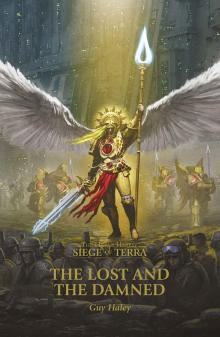 The Lost and the Damned (The Horus Heresy Siege of Terra Book 2)
The Lost and the Damned (The Horus Heresy Siege of Terra Book 2)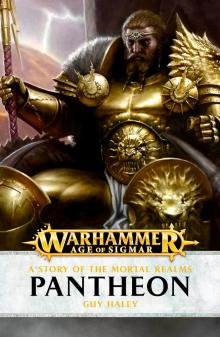 Pantheon
Pantheon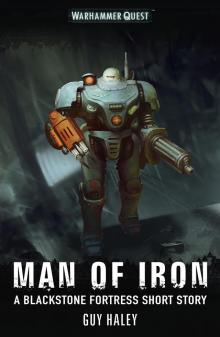 Man of Iron
Man of Iron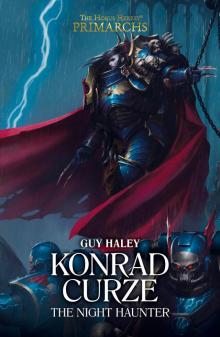 Konrad Curze the Night Haunter
Konrad Curze the Night Haunter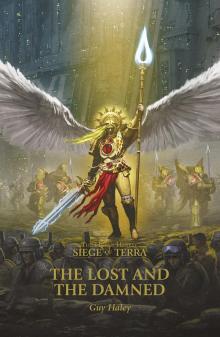 The Lost and the Damned
The Lost and the Damned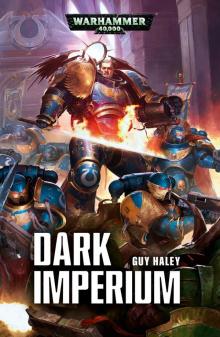 Dark Imperium
Dark Imperium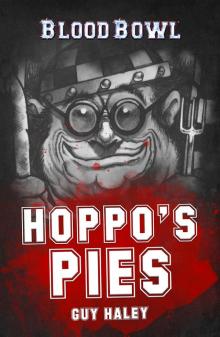 Hoppo's Pies
Hoppo's Pies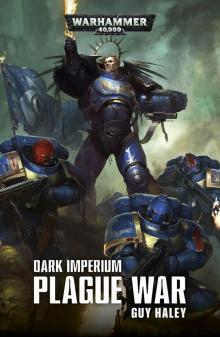 Dark Imperium: Plague War
Dark Imperium: Plague War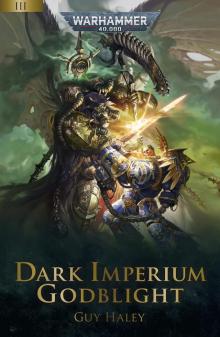 Dark Imperium: Godblight
Dark Imperium: Godblight Crash
Crash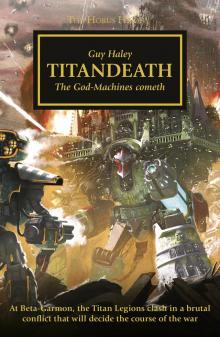 Titandeath
Titandeath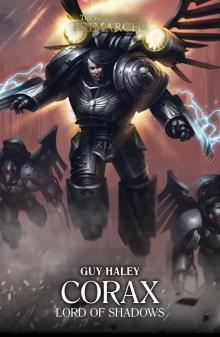 Corax- Lord of Shadows
Corax- Lord of Shadows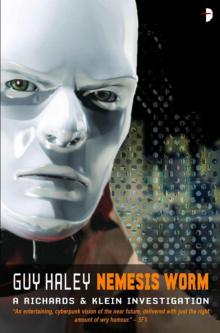 The Nemesis Worm
The Nemesis Worm Wolfsbane
Wolfsbane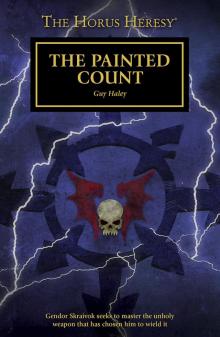 The Painted Count
The Painted Count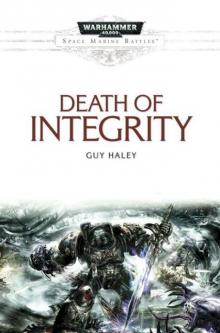 The Death of Integrity
The Death of Integrity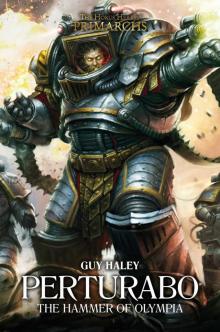 Perturabo: Hammer of Olympia
Perturabo: Hammer of Olympia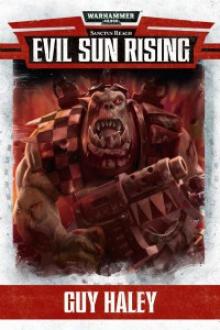 Evil Sun Rising
Evil Sun Rising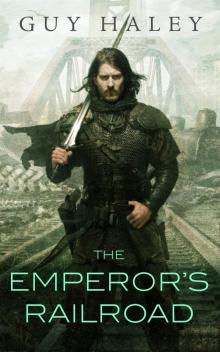 The Emperor's Railroad
The Emperor's Railroad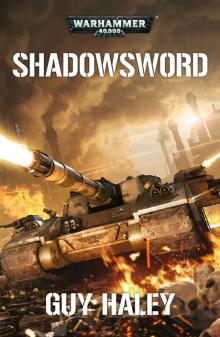 Shadowsword
Shadowsword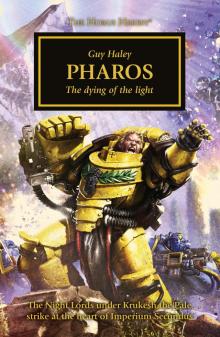 Pharos
Pharos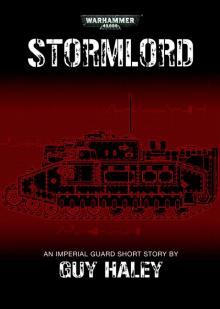 Stormlord
Stormlord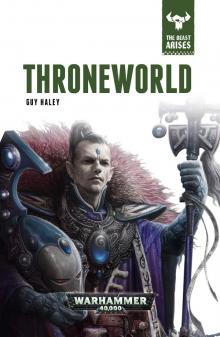 Throneworld
Throneworld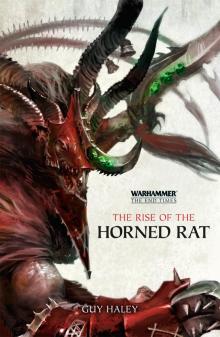 The End Times | The Rise of the Horned Rat
The End Times | The Rise of the Horned Rat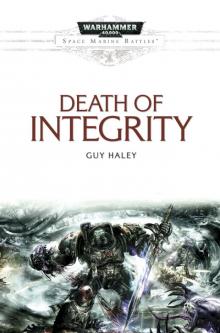 Death of Integrity
Death of Integrity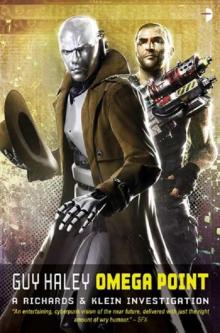 Omega Point
Omega Point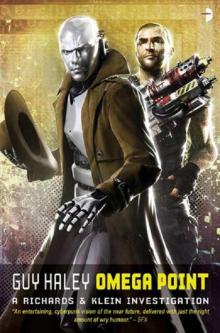 Omega point rak-2
Omega point rak-2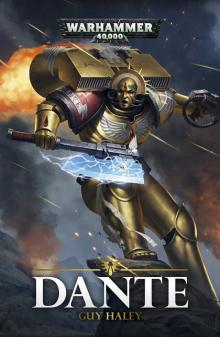 Dante
Dante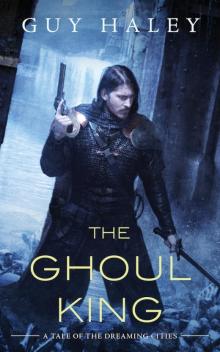 The Ghoul King
The Ghoul King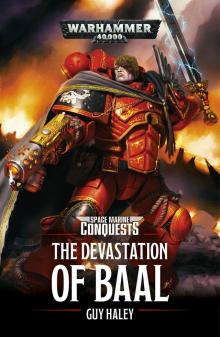 The Devastation of Baal
The Devastation of Baal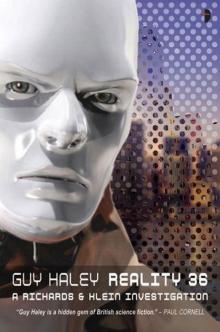 Reality 36: A Richards & Klein Novel
Reality 36: A Richards & Klein Novel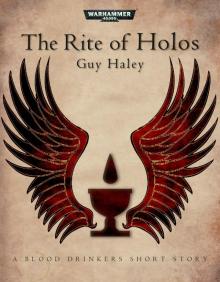 The Rite of Holos
The Rite of Holos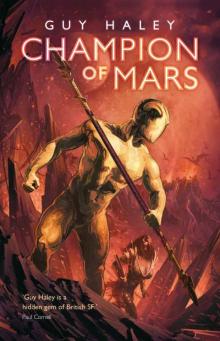 Champion of Mars
Champion of Mars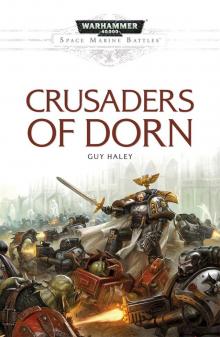 Crusaders of Dorn
Crusaders of Dorn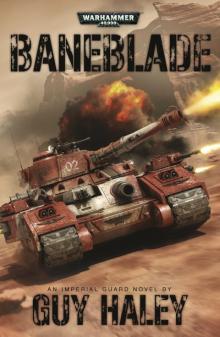 Baneblade
Baneblade